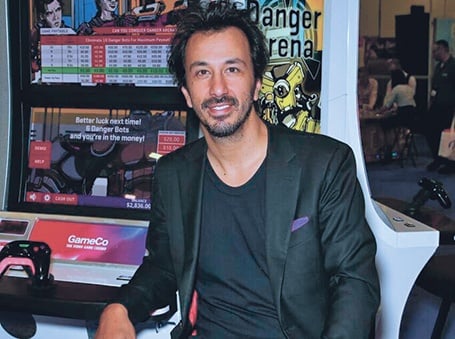Makers of New “Skill Games” Look to Macau for Market Advancement
Posted on: June 21, 2017, 07:17h.
Last updated on: June 22, 2017, 12:08h.
After a couple years of buzz about the coming wave of skill games, GameCo, a pioneer in the skill-gaming space, is set to take its slot-video-game hybrids to Macau, the world’s biggest casino market.

GameCo’s video-game gaming machines (VGMs) were initially heralded as the greatest innovation in casino gaming since video poker, early field test results have fallen short of expectations.
But undeterred by a disappointing showing on casino floors in Atlantic City, GameCo’s CEO is looking next to Macau in his effort to find a market for its skill-based gaming technology.
At the G2E Asia gaming conference in May, CEO Blaine Graboyes was there showcasing his company’s flagship VGMs, “Danger Arena” and “Pharaoh’s Secret Temple.” He told GGRAsia that he expected to gain regulatory approval in Macau for the machines before the end of 2017.
The hope for skill-based games is that they will provide a way for casinos to connect with millennials through games that resemble the first-person shooters, racing games, and puzzles they grew up playing. Transforming these experiences into something that works with the financial models of traditional slot machines is the goal.
Perception of Skill
The big difference between VGMs and slots are the payouts, with bonus rounds and other in-game activity that allows a skilled player to reduce the house edge in their favor.
Variable payout games, however, require special regulatory approval, as traditional slots mandate that all players’ chances of winning must be equal, by law.
Nevada was the first to issue special regulations for skill games in casino environments in late 2015. New Jersey followed suit, passing its rules for skill games in early 2016.
“We are all about bringing video games and gamers to the casino,” Graboyes said. “We are targeting Macau initially, with the aim of very quickly moving outward from there. We are just starting the [Macau] licensing and registration process.” he said.
Graboyes noted that his product had been given the seal of approval by Gaming Laboratories International, an independent body that verifies different games meet their 11 casino device standards, which he hopes will be enough for Macau to begin giving their games a try.
“We don’t necessarily need any new ‘skill regulations,’” he said. “What we need are jurisdictions that already accept GLI, or where they have a similar regulatory structure to GLI [standards].”
American Flop, Asian Fancy?
GameCo and Caesars Entertainment made casino history in November when the first skill-based VGMs were placed on the casino floors in Caesars’ three Atlantic City properties, Harrah’s Resort, Caesars, and Bally’s.
It was the first phase of a gaming industry experiment that sought to woo millennials to the casino floor, but last week the machines were removed from Atlantic City properties after a lackluster field test performance.
“We all understood that we were learning and experimenting,” said Melissa Price, senior vice president of gaming enterprise for Caesars Entertainment. “It was a big learning experience for all of us. People have to come find the games in a sea of 1,500 slots.”
Despite a launch that finished with a fizzle, Caesars says it remains “committed” to skill-gaming, and Graboyes, whose machines have since been installed in other New Jersey casinos, is unshakeable in his belief that skill-gaming is the future for the casino industry.
No comments yet